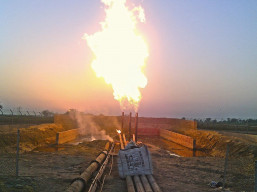
Coordinator to the Prime Minister for Climate Change, Romina Khurshid Alam, has emphasised the urgent need for robust climate risk management strategies at the national, provincial, and district levels to enhance preparedness for natural disasters and reduce their economic, social, and environmental impacts.
Speaking at the 'Humanitarian Future' event organised by the International Rescue Committee (IRC) on Thursday, Alam stressed the vital necessity of protecting vulnerable communities and maintaining the sustainability of lives and livelihoods amid climate-related challenges.
Alam outlined the escalating severity of climate impacts that Pakistan is experiencing, citing vulnerabilities to extreme weather events such as devastating floods, heatwaves, droughts, desertification, and erratic rainfall patterns.
"These challenges have led to significant economic, social, and environmental repercussions, disproportionately affecting vulnerable populations," she said. Alam added that despite Pakistan's ongoing struggles with these severe conditions, the government is making every effort within its capacity to mitigate the impacts of climate change.
"Following a similar catastrophe in 2010, Pakistan faced one of the worst flood disasters in its history in 2022, which forced the displacement of millions of people, destroyed crops, and damaged critical infrastructure," she said.
"These disasters have underscored the pressing need for flood resilience and disaster risk reduction measures to protect especially marginalised communities and critical infrastructure."
She also highlighted the significant initiatives launched at COP29 in Baku, Azerbaijan, to combat climate change. These initiatives include the Global Shield, climate justice efforts, climate-smart agriculture projects, renewable energy solutions, Pakistan's green recovery plan, nature-based solutions, and various climate finance initiatives.
Alam highlighted Pakistan's increasing dependence on glaciers and rivers for its water supply, emphasising that the country is facing acute water shortages, exacerbating challenges for agriculturea crucial sector of the national economy.
"Our agriculture is significantly threatened by water scarcity, and we need to invest in long-term solutions to tackle these challenges," she stated.
She stressed the importance of advocating for climate finance requirements, calling for improved access to international climate funds. These funds, she noted, could be utilised to support projects focused on enhancing resilience against climate change, including disaster preparedness and mitigation for environmental sustainability.
"It is essential to enable access to climate financing to implement projects that strengthen our resilience to climate change impacts," she remarked.
The PM's climate aide also underscored the importance of incorporating disaster risk financing into the global loss and damage agenda. She stated that this approach signifies a proactive measure to manage the rising costs linked to climate change.
























COMMENTS
Comments are moderated and generally will be posted if they are on-topic and not abusive.
For more information, please see our Comments FAQ